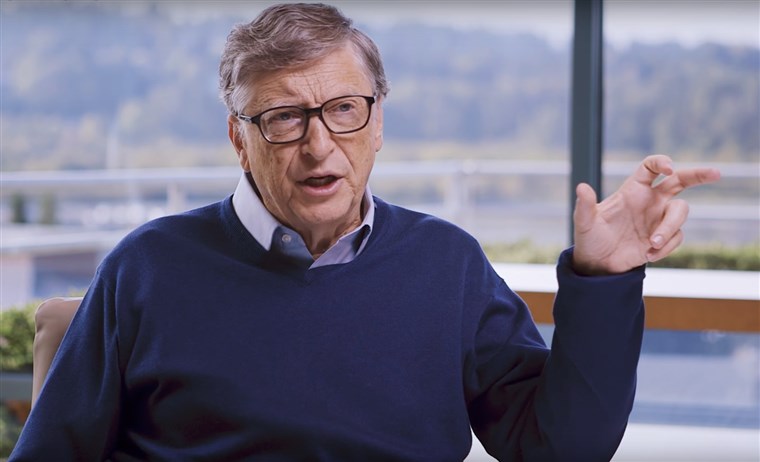Billionaire philanthropist Bill Gates said Tuesday that social media has contributed to the spread of “crazy ideas” and led to lower compliance with coronavirus measures aimed at preventing the spread of COVID-19, such as mask-wearing.
Gates has previously criticized the response of his native country to the coronavirus, calling out the lack of tracing and the weakness of regulations in the US.
Late last month, he noted that the tepid response in the US to measures aimed to combat the coronavirus, such as mask-wearing, is one reason why the country has the most number of cases in the world.
Speaking at a virtual meeting of the US-based Fast Company Impact Council, Gates said Tuesday that “crazy ideas” including refusing to wear a face mask had spread online, increasing the risk of coronavirus spreading.
“Can the social media companies be more helpful on these issues? What creativity do we have? Sadly, the digital tools have been a net contributor to spreading what I consider crazy ideas,” he said during an interview.
Gates, the founder of tech giant Microsoft and co-chair of the Bill & Melinda Gates Foundation, noted that mask compliance in the US is lower than elsewhere, a fact which he said was hard for him to understand.
“Not wearing masks is hard to understand, because it’s not that bothersome. It’s not expensive, and yet some people feel it’s a sign of freedom or something, despite risk of infecting other people,” Gates said.
Face masks are one of the few effective methods of reducing the risk of spreading COVID-19, which is transmitted far more easily than other, familiar respiratory diseases such as the flu, Gates explained.
“We haven’t seen a pathogen quite like this. Most respiratory viruses you cough … here the spreading is mostly not through coughing, it’s through singing, talking, yelling, there’s people who have so much viral load that just audio communication causes that spread. We did not expect that,” he said.
Companies and health authorities including the Gates Foundation around the world are currently in a global race to develop a vaccine. However, the Microsoft founder has been targeted previously by conspiracy theories positing that he would use the pandemic as an opportunity to create a vaccine that contains a microchip capable of tracking the entire population.
The theory has been wildly debunked, but has gained traction. Gates said the conspiracy was a worrying development, as it could affect the rate at which a vaccine could be deployed and derail efforts to stop COVID-19 in its tracks.
“A lot of it comes in the form of conspiracy, where someone has some plot, and my name even comes up as potentially even at the center of some conspiracy. It is a bit scary, you’d want to be driven towards the facts in a crisis like this,” Gates said during the interview.
Earlier in June, a Yahoo News/YouGov poll found 44 percent of Republicans believed the conspiracy theory.
Only 26 percent of Republicans accurately identified the story as false, while 19 percent of Democrats also believed the theory.
At the time, Gates said that the theory is “stupid,” but warned that it does have potentially devastating results and could actively prevent the implementation of critical measures to reduce the spread of the virus.




